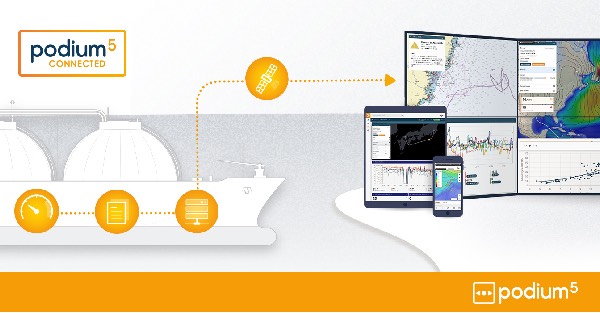Combining Raytheon Anschütz’s eLog with SOFeXchange and Podium5 transforms capability.
Converting numerous manual data processes into a digital chain of data for exchange, processing and analysis could deliver valuable voyage insights in real time for ship owners, managers or even authorities, ports and logistic companies.
Raytheon Anschütz, a business of Raytheon Technologies, has created a data connection between its new electronic logbook, eLog, the SOFeXchange data exchange service and the Voyage Informatics Platform Podium 5 to make this a reality.
“The eLog collects the hard facts, such as navigational and safety-related information,” said Volker Wenzel, technical marketing manager at Raytheon Anschütz. “Thanks to the new connections, these facts from the ships can now be further processed and analyzed instantly by various parties at shore, including, but not limited to, the statements of facts.” Statements of facts report all events during a ship’s stay in port and have been delivered traditionally in a wide variety of formats that differ from port to port and vessel to vessel.
Osiris Consultants’ SOFeXchange improves this by bringing collaboration between all parties and removing the need to transcribe the formats. Records entered into the eLog are automatically captured on the statement of facts and provided to voyage stakeholders in real time.
“The integration with eLog saves time and guarantees high-quality port documentation and simplified demurrage claims with substantially reduced work for the crew onboard,” said Wenzel.
Data from eLog and SOFeXchange can also be processed by StratumFive’s Podium 5 voyage informatics platform. Podium 5 by StratumFive performs powerful data analytics to achieve safer, more efficient and sustainable operations. It seamlessly correlates voyage reports, weather and environmental data, multi-source positional data and high-frequency sensor data.
“The eLog entries are additional observed values, analyzed by the platform to build a broader, more reliable picture of voyage performance, efficiency and other use cases, compiled to guide decisions made by stakeholders like ship owners, ship managers and charterers,” said Wenzel.
Source: Stratumfive






































